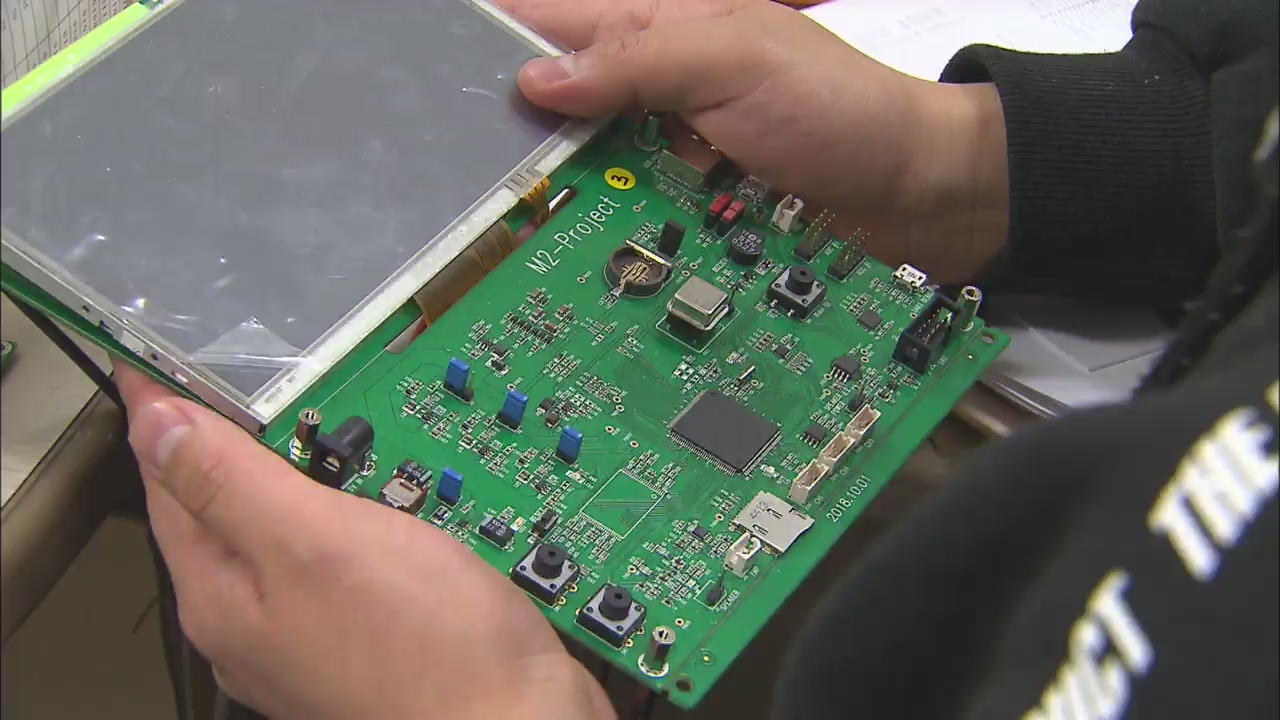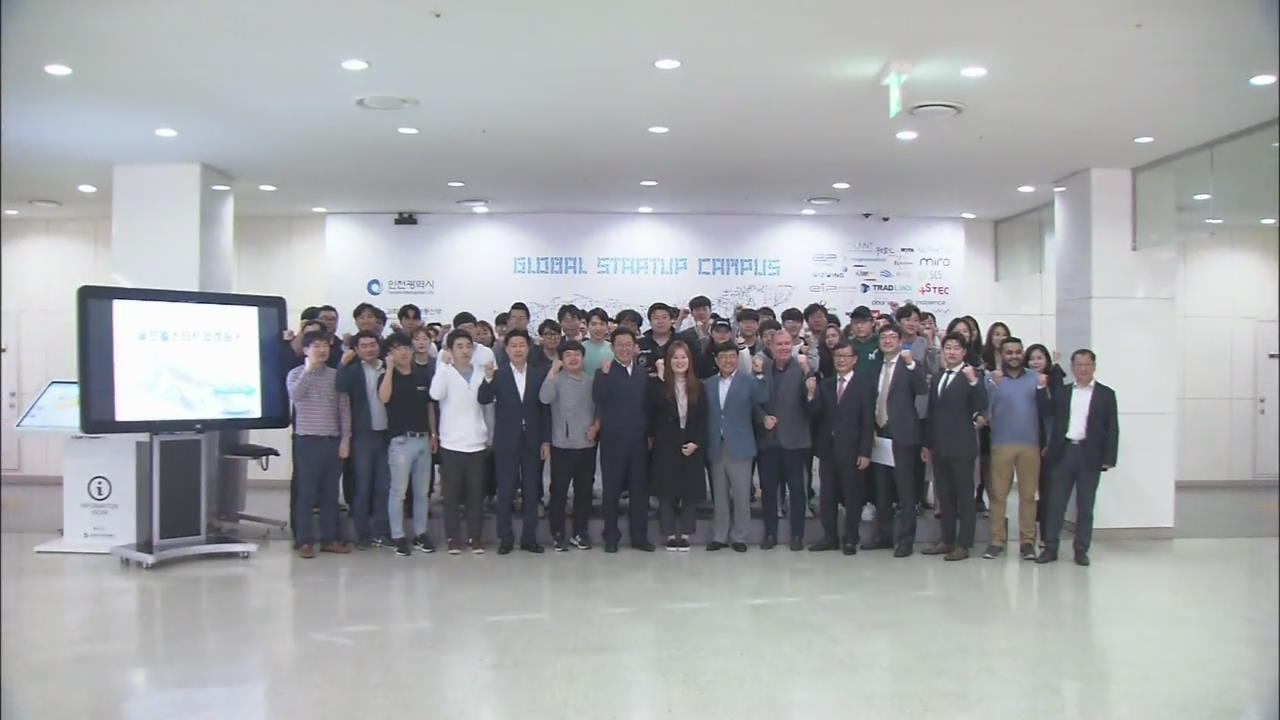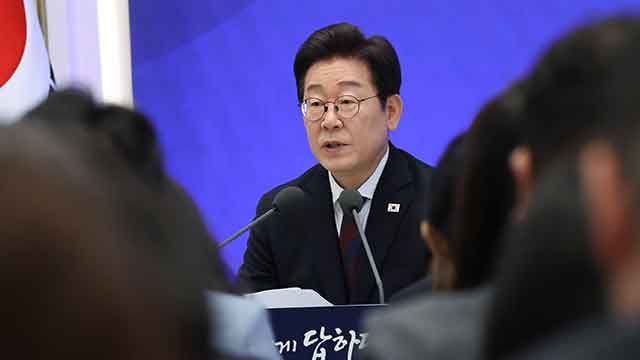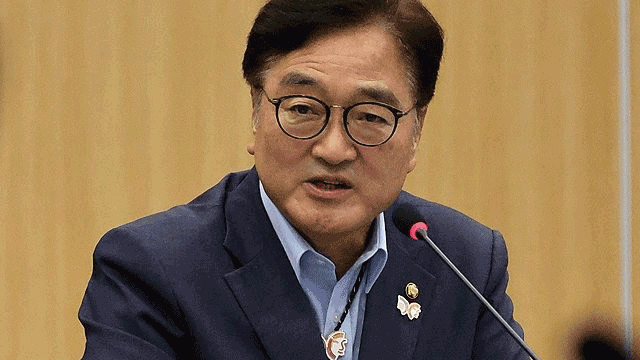INVESTMENT PLAN
입력 2019.04.25 (15:10)
수정 2019.04.25 (16:50)
읽어주기 기능은 크롬기반의
브라우저에서만 사용하실 수 있습니다.
[Anchor Lead]
Korea is known as one of the global leaders in the memory chip sector. However, Korean manufacturers remain relatively weak in the non-memory semiconductor industry. Samsung Electronics has announced a plan to invest 133 trillion won in the non-memory semiconductor sector in the next ten years.
[Pkg]
This firm designs non-memory semiconductors used in home appliances such as electric rice cookers. It's a so-called fabless company, which designs its products but outsources their manufacturing to factories based in China and Taiwan.
[Soundbite] LEE HUI(VICE PRESIDENT, AD CHIPS) : "It takes time to receive products, and language barrier is another problem."
There are more than a hundred fabless companies in Korea. They design semiconductors, but outsource their manufacturing to overseas firms. That's because Samsung Electronics, which has semiconductor manufacturing equipment, has been doing business with large corporations only. But from now on, Samsung will provide more support to domestic small and mid-sized firms in terms of manufacturing and product design. Samsung believes that building an industrial ecosystem in a joint effort with small and mid-sized firms will benefit everyone. Samsung has pledged to invest 73 trillion won in the development of non-memory semiconductors and another 60 trillion won in manufacturing equipment by the year 2030. The move is aimed at making Korea the world's leader in the non-memory semiconductor sector as well.
[Soundbite] KIM YANG-PAENG(KOREA INST. FOR INDUSTRIAL ECONOMICS AND TRADE) : "Korean businesses used to invest much in system integrated circuit development, but they began to lag behind as the market situation changed."
The semiconductor sector is watching closely whether or not the government will lay out a different plan on nurturing the non-memory semiconductor industry next week.
Korea is known as one of the global leaders in the memory chip sector. However, Korean manufacturers remain relatively weak in the non-memory semiconductor industry. Samsung Electronics has announced a plan to invest 133 trillion won in the non-memory semiconductor sector in the next ten years.
[Pkg]
This firm designs non-memory semiconductors used in home appliances such as electric rice cookers. It's a so-called fabless company, which designs its products but outsources their manufacturing to factories based in China and Taiwan.
[Soundbite] LEE HUI(VICE PRESIDENT, AD CHIPS) : "It takes time to receive products, and language barrier is another problem."
There are more than a hundred fabless companies in Korea. They design semiconductors, but outsource their manufacturing to overseas firms. That's because Samsung Electronics, which has semiconductor manufacturing equipment, has been doing business with large corporations only. But from now on, Samsung will provide more support to domestic small and mid-sized firms in terms of manufacturing and product design. Samsung believes that building an industrial ecosystem in a joint effort with small and mid-sized firms will benefit everyone. Samsung has pledged to invest 73 trillion won in the development of non-memory semiconductors and another 60 trillion won in manufacturing equipment by the year 2030. The move is aimed at making Korea the world's leader in the non-memory semiconductor sector as well.
[Soundbite] KIM YANG-PAENG(KOREA INST. FOR INDUSTRIAL ECONOMICS AND TRADE) : "Korean businesses used to invest much in system integrated circuit development, but they began to lag behind as the market situation changed."
The semiconductor sector is watching closely whether or not the government will lay out a different plan on nurturing the non-memory semiconductor industry next week.
■ 제보하기
▷ 카카오톡 : 'KBS제보' 검색, 채널 추가
▷ 전화 : 02-781-1234, 4444
▷ 이메일 : kbs1234@kbs.co.kr
▷ 유튜브, 네이버, 카카오에서도 KBS뉴스를 구독해주세요!
- INVESTMENT PLAN
-
- 입력 2019-04-25 15:13:14
- 수정2019-04-25 16:50:15

[Anchor Lead]
Korea is known as one of the global leaders in the memory chip sector. However, Korean manufacturers remain relatively weak in the non-memory semiconductor industry. Samsung Electronics has announced a plan to invest 133 trillion won in the non-memory semiconductor sector in the next ten years.
[Pkg]
This firm designs non-memory semiconductors used in home appliances such as electric rice cookers. It's a so-called fabless company, which designs its products but outsources their manufacturing to factories based in China and Taiwan.
[Soundbite] LEE HUI(VICE PRESIDENT, AD CHIPS) : "It takes time to receive products, and language barrier is another problem."
There are more than a hundred fabless companies in Korea. They design semiconductors, but outsource their manufacturing to overseas firms. That's because Samsung Electronics, which has semiconductor manufacturing equipment, has been doing business with large corporations only. But from now on, Samsung will provide more support to domestic small and mid-sized firms in terms of manufacturing and product design. Samsung believes that building an industrial ecosystem in a joint effort with small and mid-sized firms will benefit everyone. Samsung has pledged to invest 73 trillion won in the development of non-memory semiconductors and another 60 trillion won in manufacturing equipment by the year 2030. The move is aimed at making Korea the world's leader in the non-memory semiconductor sector as well.
[Soundbite] KIM YANG-PAENG(KOREA INST. FOR INDUSTRIAL ECONOMICS AND TRADE) : "Korean businesses used to invest much in system integrated circuit development, but they began to lag behind as the market situation changed."
The semiconductor sector is watching closely whether or not the government will lay out a different plan on nurturing the non-memory semiconductor industry next week.
Korea is known as one of the global leaders in the memory chip sector. However, Korean manufacturers remain relatively weak in the non-memory semiconductor industry. Samsung Electronics has announced a plan to invest 133 trillion won in the non-memory semiconductor sector in the next ten years.
[Pkg]
This firm designs non-memory semiconductors used in home appliances such as electric rice cookers. It's a so-called fabless company, which designs its products but outsources their manufacturing to factories based in China and Taiwan.
[Soundbite] LEE HUI(VICE PRESIDENT, AD CHIPS) : "It takes time to receive products, and language barrier is another problem."
There are more than a hundred fabless companies in Korea. They design semiconductors, but outsource their manufacturing to overseas firms. That's because Samsung Electronics, which has semiconductor manufacturing equipment, has been doing business with large corporations only. But from now on, Samsung will provide more support to domestic small and mid-sized firms in terms of manufacturing and product design. Samsung believes that building an industrial ecosystem in a joint effort with small and mid-sized firms will benefit everyone. Samsung has pledged to invest 73 trillion won in the development of non-memory semiconductors and another 60 trillion won in manufacturing equipment by the year 2030. The move is aimed at making Korea the world's leader in the non-memory semiconductor sector as well.
[Soundbite] KIM YANG-PAENG(KOREA INST. FOR INDUSTRIAL ECONOMICS AND TRADE) : "Korean businesses used to invest much in system integrated circuit development, but they began to lag behind as the market situation changed."
The semiconductor sector is watching closely whether or not the government will lay out a different plan on nurturing the non-memory semiconductor industry next week.
이 기사가 좋으셨다면
-
좋아요
0
-
응원해요
0
-
후속 원해요
0

















이 기사에 대한 의견을 남겨주세요.